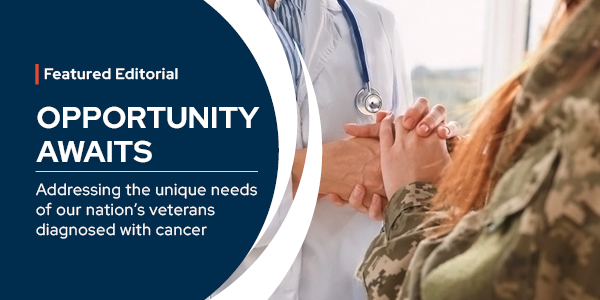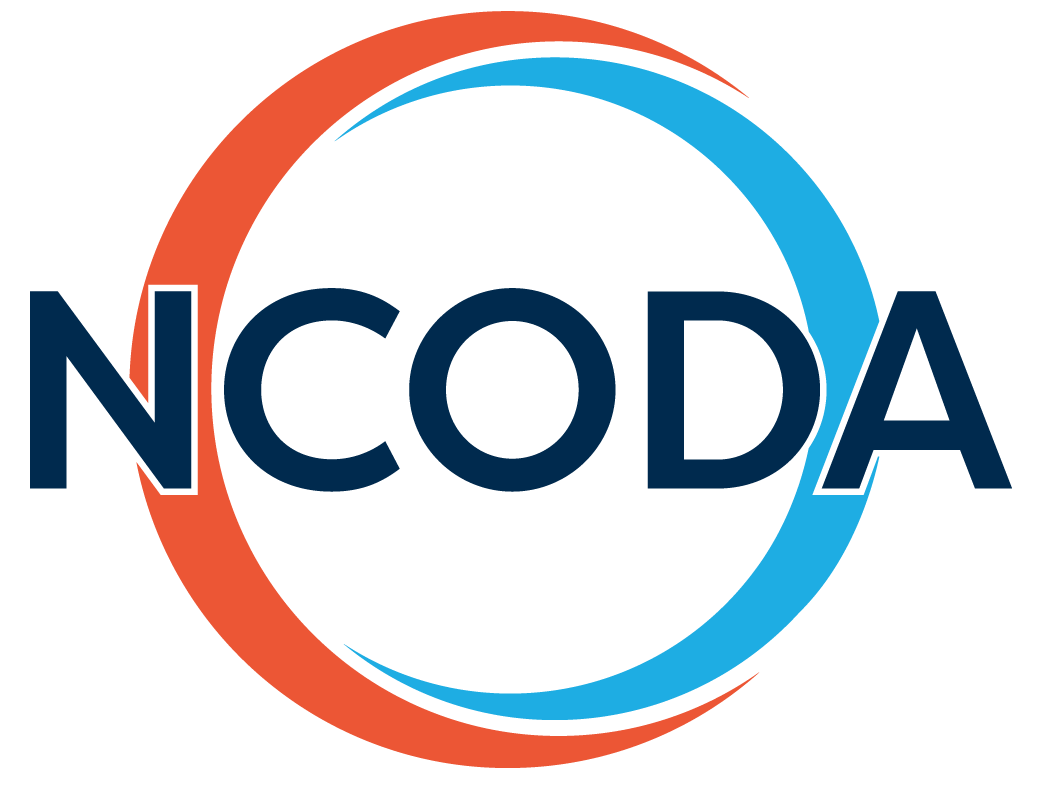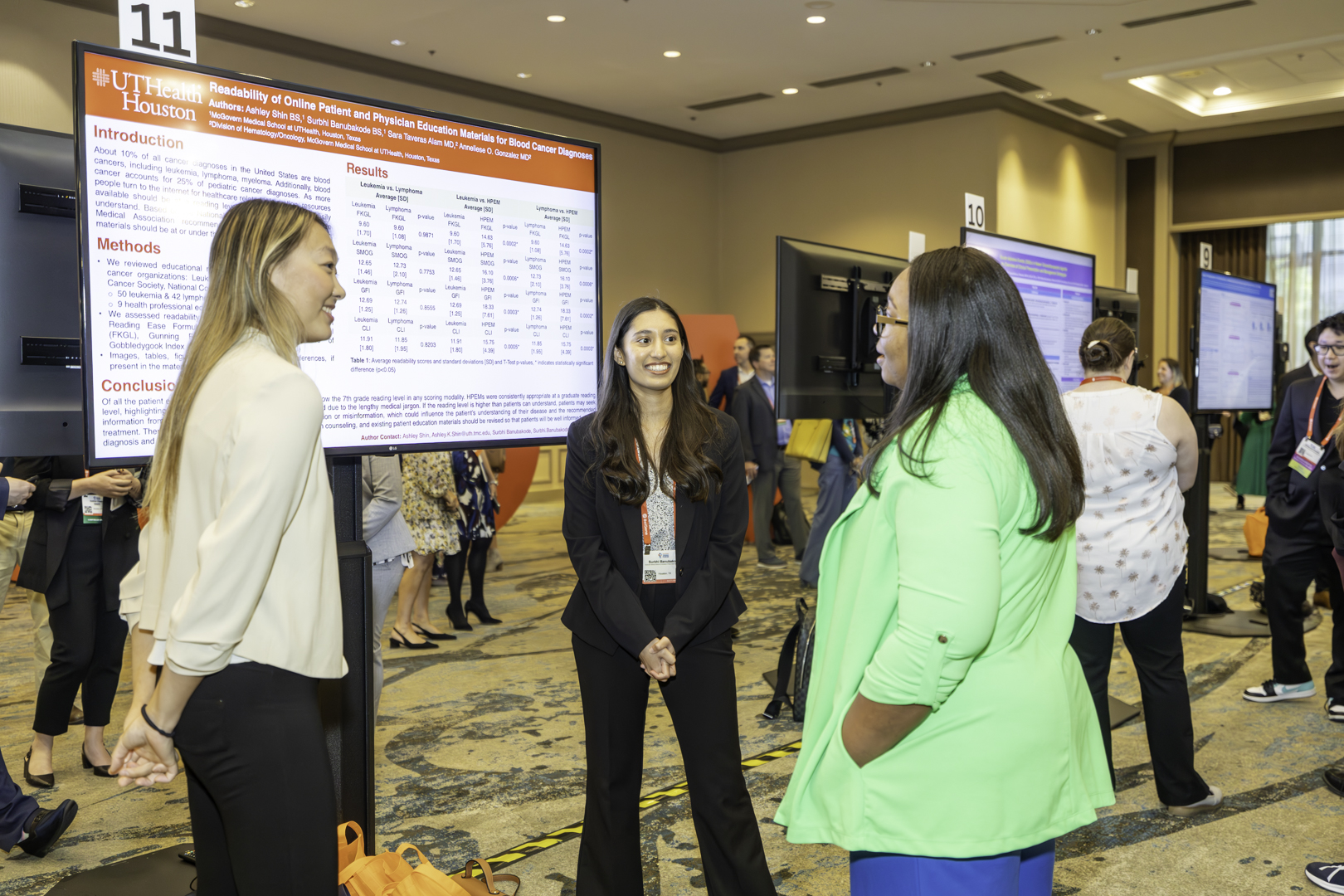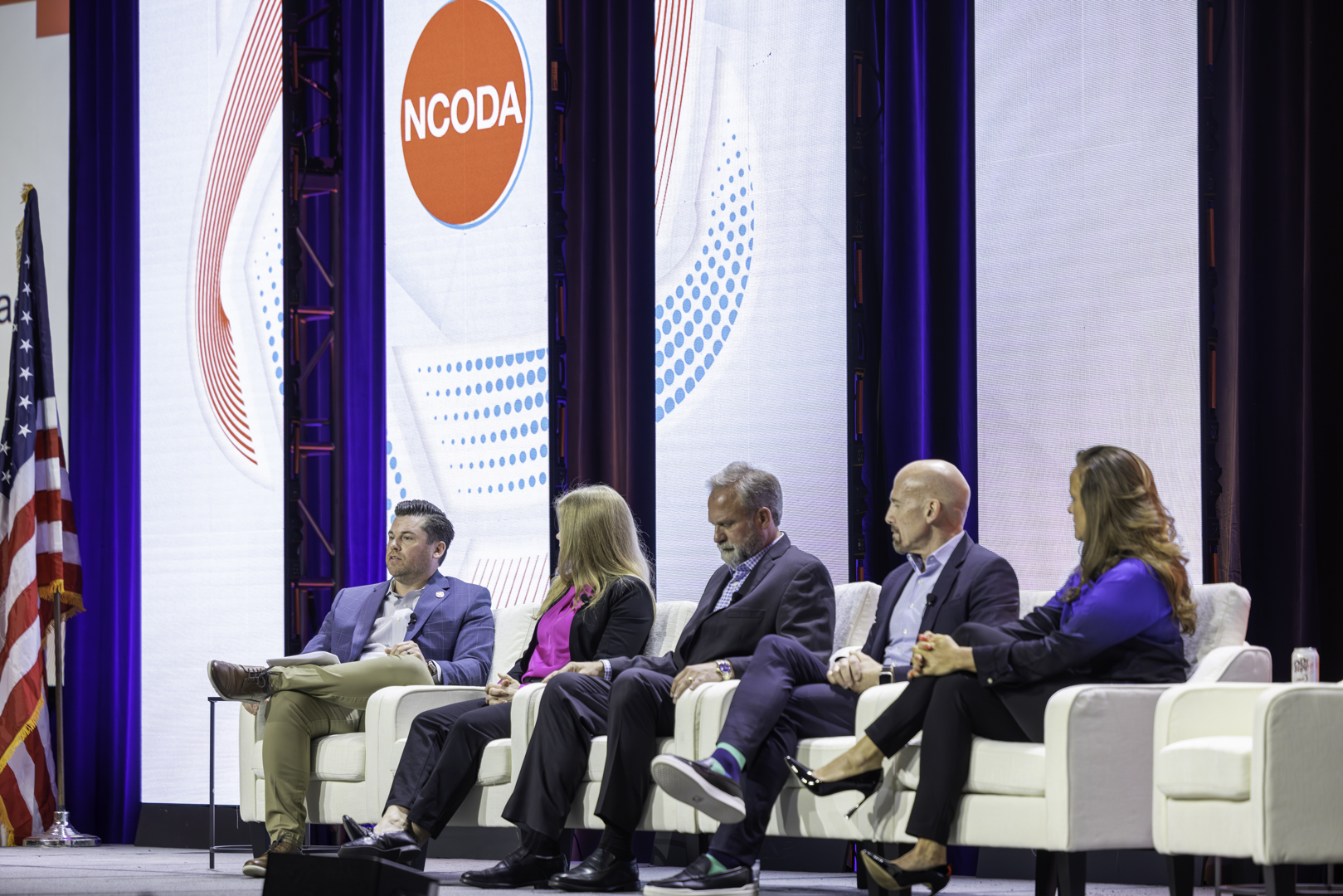2026 International Spring Forum
April 15, 2026 | 12:00 PM EST
Opportunity Awaits: Addressing the Unique Needs of Our Nation’s Veterans Diagnosed with Cancer
Published Date: November 6, 2025

Guest Editorial
Contributors:
Lucio N. Gordan, MD | President & Managing Physician, Florida Cancer Specialists & Research Institute | Board Member, NCODA
Jessica Schmit, MD | Board-certified Medical Oncologist and Hematologist, Florida Cancer Specialists & Research Institute
Kiana Mehring, MBA, PPMC, LION | Vice President, Payer Strategy & Revenue Cycle Management, Florida Cancer Specialists & Research Institute
In an ideal world, no person would have to navigate red tape or wait for approval to see the doctors they need. They would simply choose the option that offers the best care for their situation—whether it’s a local clinic, a community hospital, or a specialty center. When it comes to oncology care, that freedom of choice can mean earlier diagnoses, faster access, and better outcomes. The question is: will we ever get there?
Access to quality health care has long been a challenge for our nation’s veterans.
The MISSION Act, signed in 2018, has helped to strengthen the VA system and expand community care options so that veterans diagnosed with cancer can receive timely treatment closer to home. Still, navigating the VA system can be complicated, and some veterans continue to face challenges such as long waits, or limited access to specialized services depending on where they live.
As Florida’s largest community oncology provider, we at Florida Cancer Specialists & Research Institute (FCS) walk alongside veterans and their families every day. Within the past 12 months, more than 5,300 service members have received care through one of our nearly 100 statewide clinics.
Our mission is to deliver world-class cancer care by honoring the unique needs of veterans with a holistic approach that combines leading medical expertise with compassionate support for the physical and emotional challenges that shape their cancer journey.
The reality is:
- Veterans exposed to chemicals and environmental hazards face greater risk for cancer and experience higher incidence of certain cancers, including prostate, breast, skin bladder and lung.
- Nationwide, more than one-third of veterans enrolled in VA care reside in rural areas. Rural veterans are generally older than other rural Americans—and often have more complex health needs.
- More than one-third of veterans suffer from mental health issues that can include depression, anxiety, and post-traumatic stress disorder.
- Housing insecurity often presents further complications. Veterans constitute 5.3% of the homeless adult population, with 20% of the male homeless population being veterans.
- Changing insurance rules, unclear eligibility, and paperwork challenges can make it harder to get timely treatment.
At FCS, we are striving to advance the veteran experience and outcomes through a coordinated, whole-person approach and innovative initiatives, including:
- Convenient locations close to home – 67% of Floridians live within 20 miles of one of nearly 100 FCS clinics.
- Faster access to care — New patients are typically seen within 72 hours of referral, with families engaged from the start.
- Strong behavioral health support — Patients and caregivers benefit from standard PHQ-9 screening and personalized services, offered both virtually and in person, as part of every treatment plan. Note: the Patient Health Questionnaire (PHQ-9) is a screening tool commonly used to check for symptoms of depression. It includes nine questions, each based on the criteria for depression in the DSM (Diagnostic and Statistical Manual of Mental Disorders). Patients rate how often they’ve experienced specific symptoms and the total score helps healthcare providers identify possible depression, measure its severity, and track changes in symptoms over time.
- Comprehensive supportive care — Services include nurse navigation, nutrition counseling, palliative care, caregiver resources, 24/7 triage, and expanded support group options.
- Reducing unnecessary hospital visits – A new program uses continuous remote temperature monitoring for early identification of infections, reducing ED visits and hospitalizations and improving survival rates.
- Expanding research access and enrollment — A patient navigator connects veterans to more than 180 clinical trials, with a special initiative to bring life-saving opportunities to rural residents who face the greatest barriers and risks.
- Advocacy efforts — Our work led to the Department of Veterans Affairs extending community care authorizations from 180 days to 12 months, ensuring uninterrupted access to oncology services and fewer administrative barriers for providers.
As proud as we are of our efforts, we know that we must do better and do more.
Recent funding awarded to NCODA can help move the needle—building upon their unique capabilities to foster collaboration, education and innovation among the VA, community providers, and caregivers.
Enhancing cancer care for veterans requires providers to develop a thorough understanding of the VA’s unique funding and governance structures. This knowledge equips them to navigate complex rules effectively on behalf of their patients. For example, the Mission Act establishes access standards designed to expand veterans’ options for receiving timely care. In oncology and other specialty areas, veterans may qualify for treatment through the VA’s Community Care network if the wait time for an appointment exceeds 28 days or if the average drive time to the nearest VA medical facility is longer than 60 minutes.
The VA itself is staffed with outstanding and dedicated physicians and clinicians, and its extensive network makes it uniquely capable of meeting many of veterans’ health care needs. Yet there are times when the VA cannot provide all the specialized care required by veterans diagnosed with cancer. In those cases, opportunities exist to engage all partners collaboratively—emphasizing clear communication, mutual understanding, and shared commitment. By moving beyond a mindset of obstacles, stakeholders can work together to ensure that veterans receive the comprehensive care they both need and deserve.
Additionally, to create meaningful change, we must join together in advocacy with the policymakers who shape these decisions. Since Congress writes the laws that guide veteran care, our role is to elevate the voices of veterans and providers, ensuring their needs are heard and represented. By engaging directly with policymakers, we can help influence policies that better support timely, high-quality care for our veterans.
Will we ever get there?
The answer depends on our willingness to collaborate, communicate, and navigate the system together. By focusing on shared commitment to putting the veteran first and leveraging every opportunity to improve care, we can move closer to a future where every veteran has timely access to the cancer treatment they need—and deserve.
Visit the NCODA Veteran Care Resource page to learn more and access resources that are helpful to veteran cancer patients.






